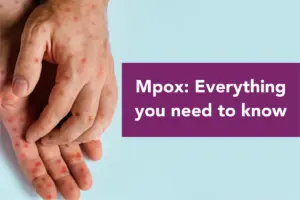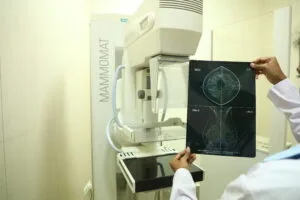Dengue fever: symptom, prevention & control

Dengue viruses are spread to people through the bite of an infected Aedes species (Ae. aegypti or Ae. albopictus) mosquito.
These are the same species of mosquitoes that also spread ZIKA, CHIKUNGUNYA, and YELLOW FEVER.
Dengue can also be passed on by a pregnant woman to her fetus during pregnancy or around the time of birth.
Dengue is caused by one of any of four related viruses: dengue virus 1, 2, 3, and 4. For this reason, a person can be infected with a dengue virus as many as four times in his or her lifetime.
SYMPTOMS:
The most common symptoms include:
- Nausea, vomiting
- Rash
- Aches and pains (eye pain, typically behind the eyes, muscle, joint, or bone pain)
Symptoms usually last for 2-7 days, with most individuals recovering after about a week. For those infected with the dengue virus, symptoms can range from mild to severe.
About 1 in 20 people who get sick with dengue will develop severe dengue.
Severe dengue can result in shock, internal bleeding, and even death.
If you have had dengue in the past, you are more likely to develop severe dengue.
Infants and pregnant women are at higher risk for developing severe dengue.
The warning signs of severe dengue include:
- Abdominal pain
- Vomiting (at least 3 times in 24 hours)
- Bleeding from the nose or gums
- Vomiting blood, or blood in the stool
- Feeling tired, restless, or irritable
Severe dengue is a medical emergency. It requires immediate medical care at a clinic or hospital.
DIAGNOSIS OF DENGUE:
Dengue can be diagnosed via:
- Fever Detect 5 in 1 Panel (FD5) – is a PCR based test which can detect 5 common monsoon fever i.e. dengue, chikungunya, malaria, leptospirosis, and typhoid.
- Dengue RNA PCR – this test detects the presence of the virus in the blood and is useful in the 1st five days after onset of fever.
- Dengue NS1 Antigen – this test becomes positive within 1-2 days of infection and is useful only within the 1st five days after which it becomes negative.
- Dengue IgM Antibodies – IgM antibodies appear in the early course of the disease and are usually seen post the 5th day of fever.
POST-DENGUE COMPLICATIONS:
Dengue can have some long-term ill-effects i.e. problems which can arise after a dengue infection:
- Hair fall
- Joint pain
- Muscle pain
- Vitamin deficiencies (B12, D and E)
PRACTICAL TIPS FOR THE PREVENTION OF DENGUE:
- Clean your house and close doors and windows before sunset, as mosquitos are usually more active during and post-sunset.
- Preventing mosquitoes from spreading is to destroy their potential breeding places. Mosquitoes breed in stagnant water. So, get rid of stagnant water – clear all sources of standing water including barrels, vases, basins or even cups and unused tires.
- Use mosquito repellents.
Suburban Diagnostics offers a wide range health check-up packages that are tailored according to your gender and age group. Take control of your health today and make your health a priority!



